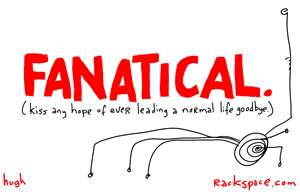 There was a heartbreaking story on Yahoo recently about teachers as bullies. I don’t want to spend time talking about how awful the teachers are and express my moral outrage because it’s going to be difficult to find anyone who disagrees. Never accuse me of taking the easy path! What I do want to talk about is how it happens that people are hired for certain jobs.
There was a heartbreaking story on Yahoo recently about teachers as bullies. I don’t want to spend time talking about how awful the teachers are and express my moral outrage because it’s going to be difficult to find anyone who disagrees. Never accuse me of taking the easy path! What I do want to talk about is how it happens that people are hired for certain jobs.
This one is going to be difficult for my audience to swallow but sometimes people take jobs because it gives them a chance to act out on their sadistic nature. We like to think that people pick a career they enjoy but there are a number of self-loathing people out there who enjoy hurting others, this is how we get teachers as bullies. I know it seems strange to call them self-loathing but generally people who hate themselves are the ones who are most sadistic to others. An interesting idea but a topic for another day.
What I want to explore today is how to avoid getting sadists in positions where they can take advantage of their desire to hurt other people. I think most teachers, police officers, soldiers, boy scout leaders, animal husbandry employees, and others who work at jobs where there is power over other people or animals are in it because they want to help. But, there is a sizeable minority who take jobs like that simply to hurt others, to be teachers as bullies.
There are two hugely important factors in preventing sadists from getting into positions like this. The most important is management oversight. Anyone who manages positions like that needs to be constantly vigilant that people they hire might be sadistic. The second thing that must be done is careful evaluation of people who apply for such jobs. The police force and the army are well aware that sadists apply and screen for them. Finally, and this is an absolute must, people who use their position of power to abuse other people must be immediately punished or removed. If this behavior is allowed then it simply emboldens sadists and causes good people to leave.
This is something that seemed to be strategy of the George W. Bush administration. Abu Graib, Pat Tillman, Brownie. The first instinct was to cover-up the wrong-doing because it embarrassed the people in power. The cover-up just emboldens sadists to be more brazen in their actions and inhibits good people.
I have absolutely no doubt the teachers in the case that I mentioned at the top of this article were at some point reported by teachers whose sense of decency and love of children motivated them into action. I’m just as certain no action or minimal action was taken to avoid scandal and embarrassment. Thus good people were driven away and sadists thrived.
The only thing necessary for evil to triumph in the world is that good men do nothing.
Thank you Edmund Burke. Of course, he never said it. What he did say was this:
When bad men combine, the good must associate; else they will fall, one by one, an unpitied sacrifice in a contemptible struggle.
So, the next time you encounter sadistic behavior, even in mild form, step up and take action. Particularly if you are a supervisor. It’s hard to confront people sometimes but the consequences of allowing such behavior are too terrible to tolerate.
Tell me what you think.
Tom Liberman








